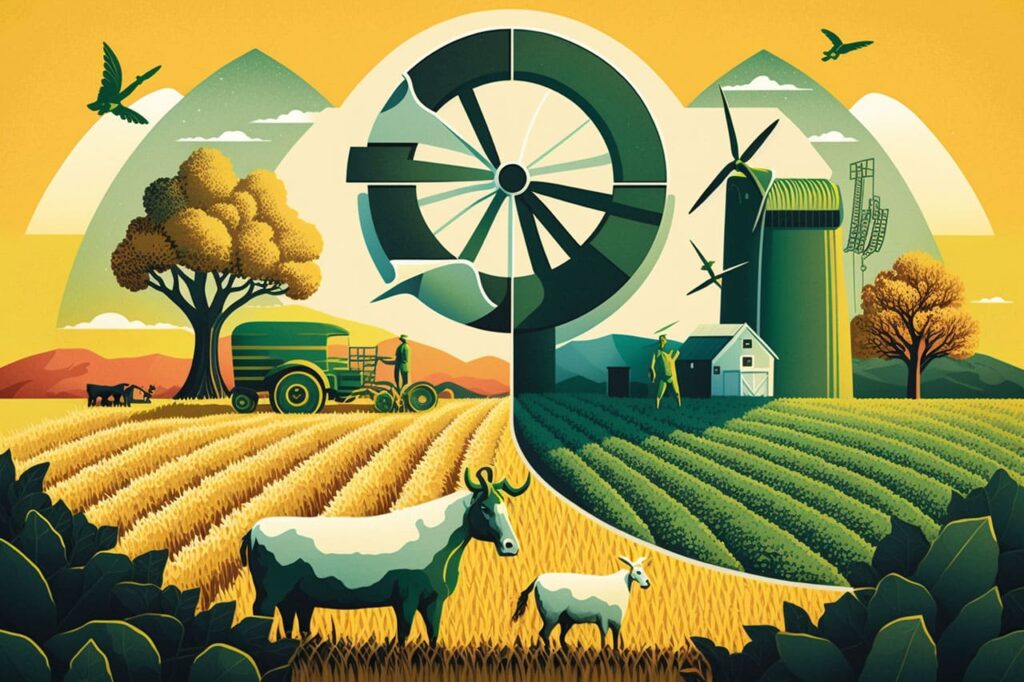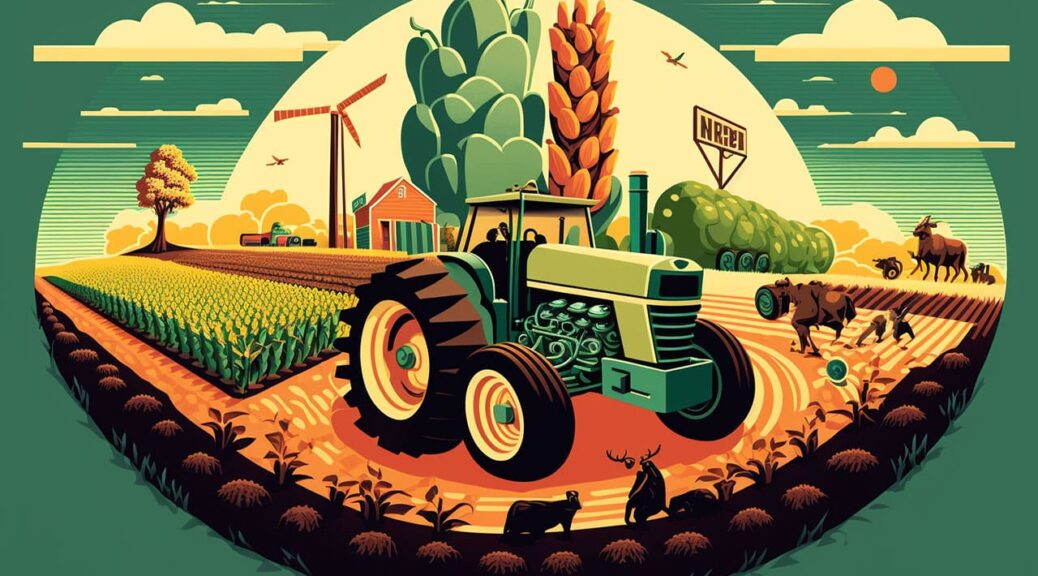Agriculture is a significant source of greenhouse gas emissions, accounting for around 25% of global emissions. As the world’s population continues to grow, the demand for food is increasing, and the agricultural sector is under pressure to produce more food while reducing its impact on the environment. Sustainable agriculture offers a potential solution to this challenge. In this article, we will explore the role of sustainable agriculture in reducing greenhouse gas emissions.
What is Sustainable Agriculture?
Sustainable agriculture is a farming system that focuses on producing food in a way that is environmentally and socially sustainable. It involves practices that promote soil health, reduce the use of chemicals, and enhance biodiversity. Sustainable agriculture aims to balance the needs of the environment, society, and the economy, ensuring that agriculture can continue to meet the needs of future generations.

How Sustainable Agriculture Reduces Greenhouse Gas Emissions
1. Reducing Fossil Fuel Use
Sustainable agriculture promotes the use of alternative energy sources, such as solar and wind power, to reduce fossil fuel use. This reduces greenhouse gas emissions from agricultural machinery and equipment.
2. Soil Health Management
Sustainable agriculture practices, such as conservation tillage and cover cropping, promote healthy soils that can sequester carbon. Healthy soils can absorb and store carbon, reducing greenhouse gas emissions from the atmosphere.
3. Livestock Management
Livestock farming is a significant source of greenhouse gas emissions. Sustainable agriculture practices, such as rotational grazing and feed management, can reduce the impact of livestock farming on the environment. This can include reducing the number of animals or changing the type of feed to reduce emissions.
4. Reduced Chemical Use
Sustainable agriculture practices aim to reduce the use of chemicals, such as fertilizers and pesticides, which can have a significant environmental impact. This can reduce the environmental impact of agriculture and, in turn, reduce greenhouse gas emissions.
Conclusion
The role of sustainable agriculture in reducing greenhouse gas emissions is essential. Sustainable agriculture practices promote healthy soils, reduce the use of fossil fuels, and promote biodiversity. By reducing the environmental impact of agriculture, we can mitigate the effects of climate change and create a more sustainable future. It is crucial that governments and the agricultural sector support sustainable agriculture practices, and that consumers choose sustainable food options to promote the adoption of sustainable agriculture practices.
By adopting sustainable agriculture practices, we can ensure that agriculture continues to meet the needs of society while preserving the environment for future generations.
